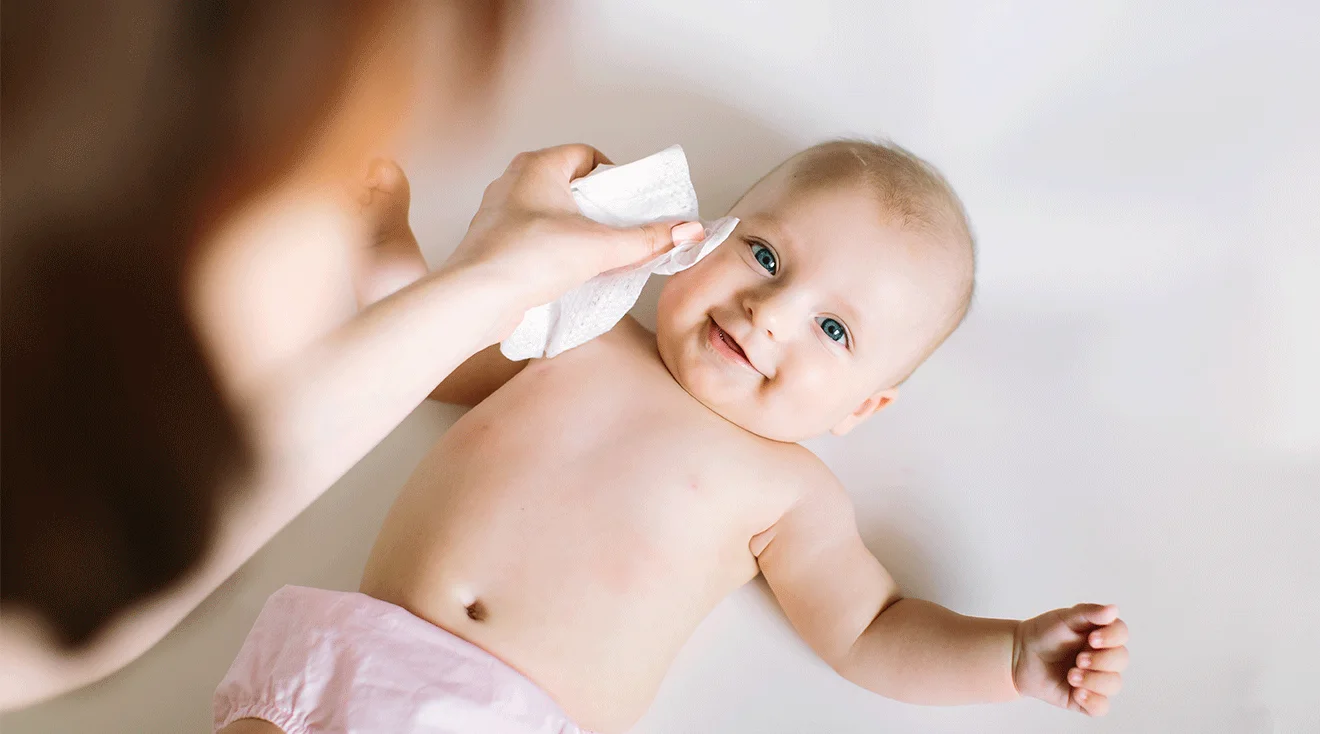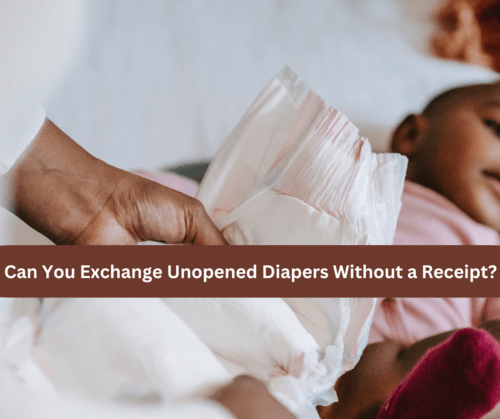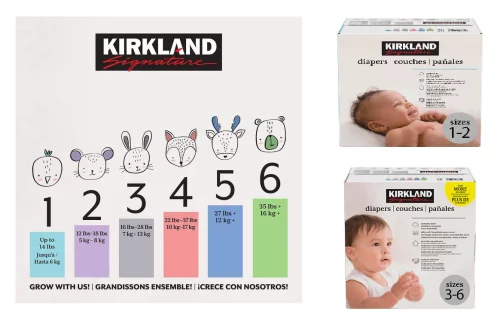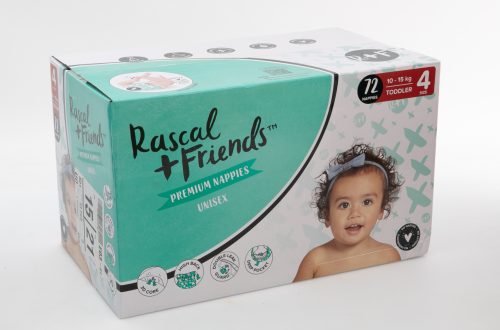If you have an HSA (Health Savings Account) or a Flexible Spending Account, you may wonder if you can use those funds to purchase diapers. The answer is yes! HSA accounts can be used for various healthcare expenses, including purchasing diapers for your little one.
These accounts allow you to set aside pre-tax dollars to pay for eligible medical expenses; diapers are necessary for babies and toddlers. However, it’s important to note that not all diapers may be covered, so it’s always best to check with your specific account provider.
So, stock up on those diapers, knowing you can use your HSA to save money on this essential item. Keep reading to learn more about other items you can purchase with your HSA.
Understanding Your HSA

An HSA stands for a personal health piggy bank. It’s a place to store money safely. You get to contribute pre-tax dollars, reducing your taxable income. This money grows tax-free, awaiting health-related expenses. Picture it as a nest egg for medical needs.
Each year, you decide how much to tuck away. But there are annual limits. It’s $3,850 for individuals. Families can set aside $7,750. Remember, these funds roll over from year to year. There’s no “use it or lose it” pressure. Your employer may also contribute, sweetening the pot.
To open one, you need a high-deductible health plan. Think of this account as a health-focused savings tool. It empowers you to manage healthcare spending proactively. With an HSA, you’re in the driver’s seat of your health finances.
Related: Kudos Diapers Reviews: You Need to Know Everything (2024 Updated)
The Basics of Eligible Expenses
Diving into the realm of eligible expenses unlocks a treasure trove. It’s not just about band-aids or doctor visits. Your HSA or FSA is more versatile than you might think. From prescription medications to dental treatments, the scope is broad.
Even acupuncture and chiropractic services find their place here. Surprisingly, many over-the-counter items qualify with a doctor’s note. Think beyond the usual – vision care includes glasses and contacts. Mental health services are also under this umbrella, a nod to holistic well-being.
The rule of thumb is simple: if it’s for the diagnosis, cure, mitigation, treatment, or prevention of a disease, it likely qualifies. This broad definition opens doors to numerous healthcare products and services.
Remember, the IRS provides a comprehensive list, but always check with your account administrator. They can clarify doubts, ensuring you maximize every dollar. This exploration into eligible expenses reveals the true flexibility of your HSA or FSA.
Can You Buy Diapers With HSA?
Navigating the HSA world feels like a financial safari. Surprises wait around every corner. Diapers, the quintessential baby necessity, often raise questions. Can HSA funds stretch to cover them? The answer could be more straightforward.
Generally, diapers fall outside typical HSA coverage. They’re seen as everyday items, not medical necessities. But there’s a twist in the tale. For children with specific medical conditions, the story changes. Diapers then transform into eligible expenses.
A doctor’s note becomes the golden key. It must state the medical necessity for diapers. With this note, you unlock the HSA treasure chest for diapers. Remember, documentation is crucial. Keep all receipts and doctor’s notes safe.
They’re your proof for HSA administrators. This exception shines a light on HSA’s flexible edges. It illustrates how specific circumstances alter HSA rules. Always check the latest guidelines. They shift as often as the financial winds. Stay informed to maximize your HSA’s potential.
What About Other Baby Supplies?
Beyond diapers, the baby world is vast. Wipes and baby creams stir curiosity. Are these covered under HSA or FSA funds? The situation is nuanced. Wipes, unless medically necessary, often don’t qualify. They’re viewed as general baby care items.
Creams for diaper rash, however, might cut. A doctor’s note can work wonders here, too. Breast pumps and supplies are a brighter story. They enjoy full eligibility under most plans. It’s a nod to the essential nature of feeding. Bottles and baby formula tread a finer line.
Particular medical conditions might render them eligible. Always keep a keen eye on updated lists. Account administrators are your best guides here. Their knowledge navigates the complex landscape. Each baby supply holds a unique story of coverage.
Understanding these stories maximizes your spending account benefits. Remember, the key lies in medical necessity. This principle guides the coverage journey.
How To Make The Most Of Your HSA
Optimize your HSA with strategic planning. Start by estimating your annual healthcare expenses. This step ensures you contribute enough but not excessively. Next, familiarize yourself with your plan’s specifics. Understanding the ins and outs can unlock savings.
Also, consider investing HSA funds for long-term growth. Many HSAs offer investment options, much like a 401(k). Investing wisely can exponentially increase your account’s value. Remember to keep meticulous records of all transactions.
Receipts and documentation are your safety net for audits. Use your HSA debit card for direct payments when possible. This simplifies the process, making it hassle-free. Regularly review your account to adjust contributions as necessary.
Life changes, and so do your healthcare needs. Finally, educate yourself on new eligible expenses each year. The IRS occasionally updates the list, expanding your spending power. By following these steps, you’ll harness the full potential of your HSA.
Navigating Changes and Updates
Keeping abreast of HSA changes requires diligence. Healthcare legislation evolves, affecting HSA rules. Regularly check with your account administrator for updates. They track changes, ensuring you stay informed. Bookmark the IRS website for direct information.
It lists current qualified medical expenses. Join forums where HSA users share insights. Real-life experiences can offer practical advice. Subscribe to newsletters from financial advisors. They provide expert analysis of healthcare savings trends.
Use alerts in your banking app for HSA updates. Technology simplifies staying current with rules. Adjust your spending plan based on new information. Flexibility is critical to maximizing HSA benefits.
New items may become eligible, expanding your options. Always verify before assuming expenses are covered. Missteps can lead to unexpected out-of-pocket costs. Proactive research saves you money in the long run.
What Counts as a Qualified Medical Expense?
Qualified medical expenses are the heart of HSA spending. They include treatments and services for physical health. Mental health care also falls under this broad umbrella. This includes therapy sessions and psychiatric evaluations. Prescriptions for both physical and mental ailments are covered.
Take preventive care seriously; it’s essential and eligible. Screenings and vaccinations keep you healthy and are qualified expenses. Dental care, from cleanings to fillings, is included too. Eye care, such as exams and corrective lenses, qualifies.
Medical equipment, like crutches or wheelchairs, is covered. Home modifications for disabilities make the list. Hearing aids and related services are also eligible. Understand cosmetics procedures generally do not qualify.
Invariably, the IRS always holds the definitive guide on eligible expenses. Your HSA adventure thrives on knowing these rules. Keep this knowledge close; it guides your spending journey.

The Specifics of Diaper Coverage
The diaper coverage via HSA has unique contours. It is not a wide-open door. Instead, it’s more like a narrow passage. Diapers for everyday use don’t fit through. They stand outside the coverage circle. Yet, medical conditions carve a path for them.
It’s a specific corridor designed for unique needs. A doctor’s note lights up this pathway. It signals a medical necessity for diapers. This documentation is crucial for coverage. It serves as a bridge between need and eligibility.
The gap remains. Diapers for conditions like incontinence weave through. They earn their spot under the HSA umbrella. It’s a tailored fit, precise and defined. Each case demands individual scrutiny.
The HSA guidelines navigate these waters. They help chart the course for diaper coverage. Specific rules mark this journey. Knowing them unlocks the door to diaper reimbursement.
How to Get Reimbursement for Eligible Diapers
Securing reimbursement for eligible diapers begins with a doctor’s note. This note must outline the medical necessity for diapers. Once in hand, purchase the diapers as you usually would. Please keep the receipt; it’s essential for your claim.
Next, log into your HSA provider’s online portal. Most providers offer a straightforward claims process there. Upload the receipt along with the doctor’s note. Make sure the documents are clear and legible. You may also need to fill out a reimbursement form.
Check for any additional steps specific to your HSA provider. Submit your claim and wait for processing. It typically takes a few weeks. Keep an eye on your account for the reimbursement. If issues arise, contact your HSA provider directly. They can help resolve any questions. With these steps, you’ll navigate the reimbursement process smoothly.
Alternative Uses for Your HSA
- Explore wellness programs that may qualify.
- Invest in sunscreen and skin cancer-preventative products.
- Consider physical therapy sessions after injuries.
- Use funds for weight loss programs if prescribed.
- Pay for health screenings not covered by insurance.
- Cover travel expenses related to medical treatments.
- Look into buying a high-quality air purifier.
- Finance orthodontia or dental implants if needed.
- Think about using it for a quit-smoking program.
- Purchase ergonomic furniture for home office setups.
- Get advanced genetic testing or fertility treatments.
- Explore mental health apps or online counseling services.
- Cover the cost of first aid kits for home and car.
- Use it for acupuncture or osteopathy if considered necessary.
These suggestions open a broader spectrum of potential health-related uses. Each one represents a proactive step towards managing your health and wellness.
Tips for Maximizing Your HSA
- Always review the list of eligible expenses yearly.
- Adjust contributions based on healthcare needs and family size.
- Invest HSA funds wisely for potential growth.
- Use an HSA debit card for seamless transactions.
- Keep all receipts and documentation organized and accessible.
- Educate yourself on updates to HSA guidelines and rules.
- Explore preventive care options that are fully covered.
- Consider contributing up to the maximum limit.
- Check if your employer contributes and maximizes their match.
- Use HSA funds for long-term health investments, not just immediate needs.
- Engage with HSA forums and communities for shared tips and advice.
- Consult with a financial advisor on HSA strategies and tax benefits.
- Stay proactive in managing your HSA for optimal financial health.
Frequently Asked Question
What baby items are HSA eligible?
Breast pumps and supplies are fully eligible under most HSA plans, as they are essential for feeding.
Can You Buy Diapers With HSA?
Generally, no. Diapers are typically not covered by HSA unless they are for a child with a specific medical condition and you have a doctor’s note stating the medical necessity.
Can You Buy Diapers With HSA wipes?
Baby wipes are usually not eligible under HSA funds as they are considered general baby care items, not medical necessities.
Can You Buy Diapers With HSA bottles?
Baby bottles may qualify under certain medical conditions that necessitate special feeding equipment. It’s best to consult with your HSA provider for specifics.
Can HSA pay for the formula?
The baby formula might be covered if there is a medical necessity, such as a prescription from a healthcare provider for a unique formula due to allergies or digestive issues.
Can You Buy Diapers With HSA milk?
Regular milk is not eligible under HSA. However, specialized formulas for medical conditions may be covered with proper documentation.
Conclusion: Can You Buy Diapers With HSA
In conclusion, diapers aren’t typically eligible for HSA purchases. Therefore, verifying what items qualify before using your HSA funds is essential. However, you can still use other payment methods for buying diapers. Therefore, it’s essential to plan your expenses accordingly.
In summary, while HSA funds provide tax advantages, they have specific guidelines. Thus, it’s wise to consult your HSA provider for clarity. Ultimately, being informed ensures you make the most of your HSA benefits.
Therefore, understanding what you can and cannot purchase with your HSA is crucial. In essence, diapers may not qualify, but other options are available. Hence, it’s advisable to manage your expenses wisely.




